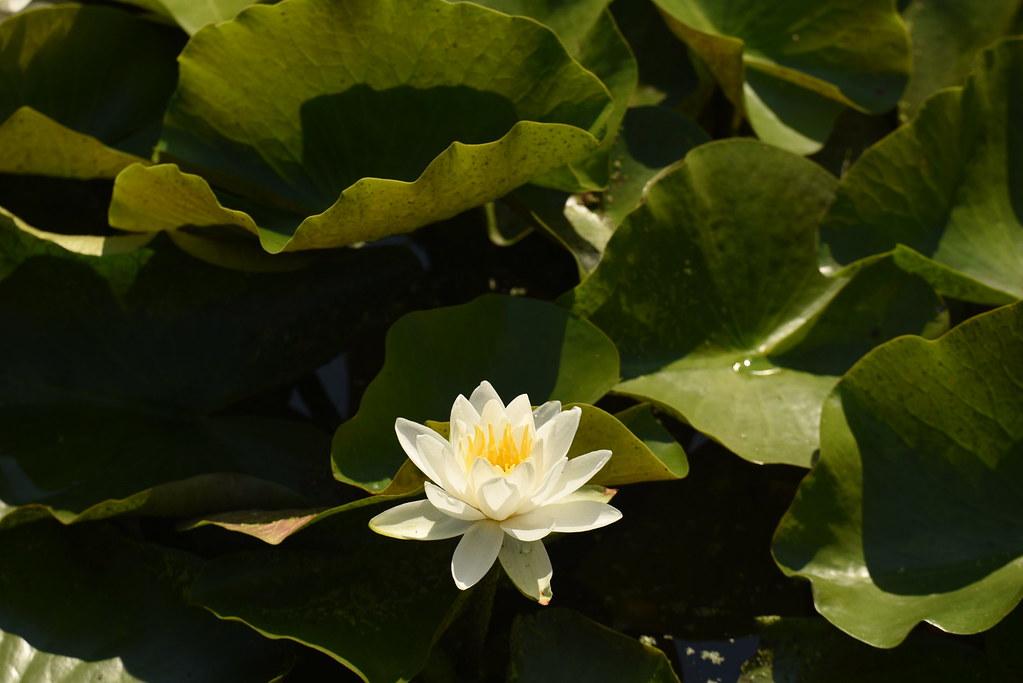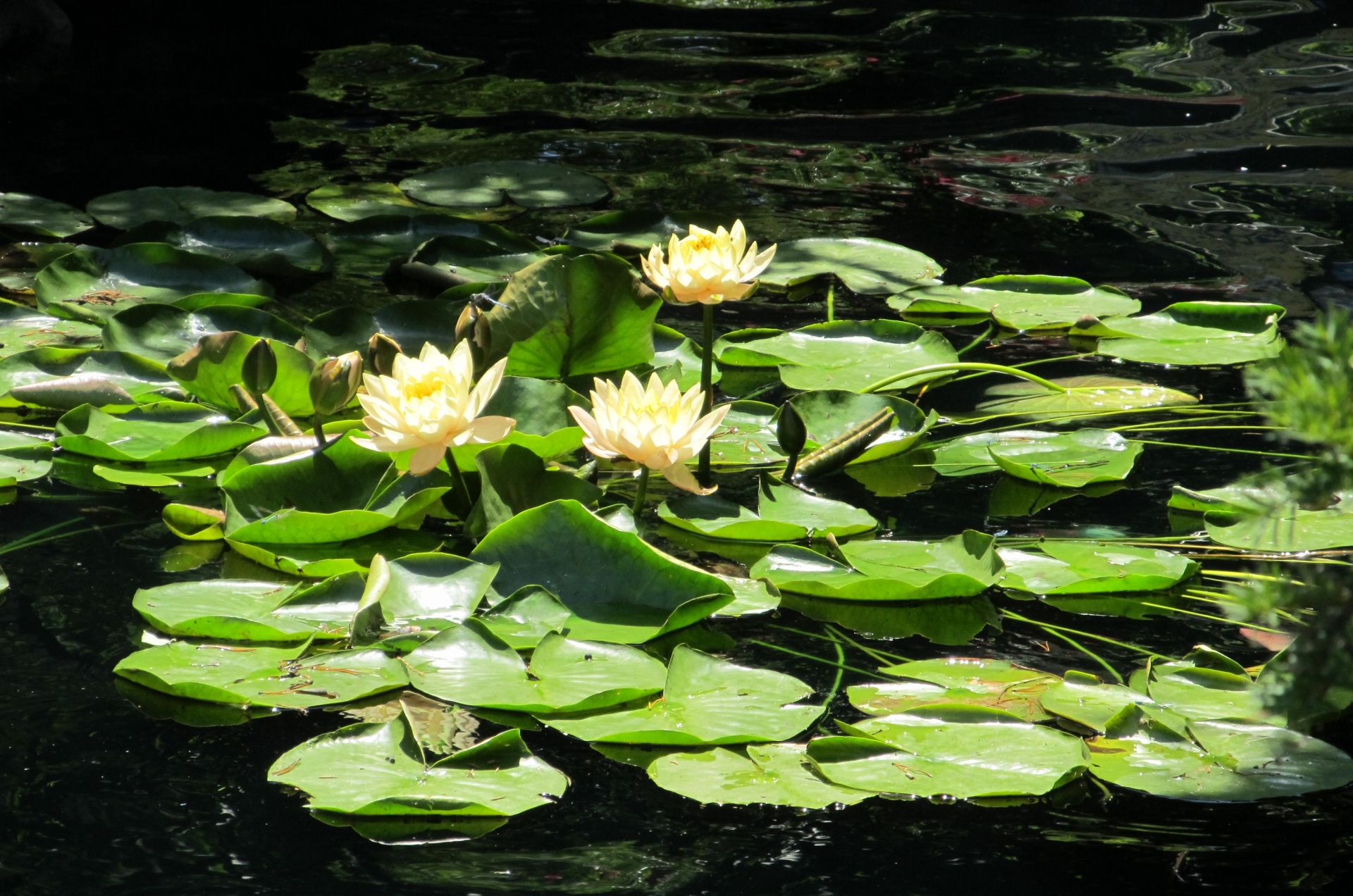
Alba water lily. (Nymphaea alba) (Native) Wetland Plants
The water lily is the most exquisite pond plant. With a stunning variety of colours and flowers. World of Water's range of water lilies for sale both online and in-store will give you months of pleasure during the summer and enhance the pond environment creating interest and texture in the deeper water section of your water garden. Filter: view as

Native Water Lily Steven Severinghaus Flickr
Options. Nymphaea alba is our only native water lily with plain green foliage and white flowers. It's not a prolific producer of flowers, but leaves are produced in profusion, which makes for rapid surface cover. Suitable only for larger ponds as it grows quite fast. 1 litre sized plants are young plants that are unlikely to flower in their.

Water Lilies Perth, Sydney, Melbourne, Brisbane, Adelaide The Lily Farm
Botanical name: Nymphaea Instantly recognisable, waterlilies are possibly the most sought after of all aquatic plants. There is a vast array to choose from, for ponds large and small, with summer flowers in various colours. Looks The sumptuous bowl-shaped blooms come in various colours and sizes.

Innocence waterlily Water lilies, Bloom, Plants
Description Alba water lily. (Nymphaea alba) (Native) Alba water lily is the only native water lily in Britain where it is found in large pools and slow moving rivers and it is a magnificent plant. The flowers, which often appear two to four at a time, are white with light yellow centres and reach (10-13 cm) across.

FileWater Lily Closeup.jpg Wikimedia Commons
Lilies make a beautiful addition to any pond. The elegant flowers can be seen from June to September. Ideally 2 thirds of the ponds surface should be covered with lily leaves (or floating plants). The shade they provide lowers light levels, which in turn reduces algae growth. Lilies do not like water splashing on their
Weedpicker's Journal Aquatic Plants
A water lily (Nymphaeaceae, noting that the native species, Nymphaea alba can be too vigorous for use in a smaller pond) - possibly the most sought after of all water plants. With many shapes, sizes and colours to choose from, they are an excellent choice for any wetland garden, from an informal pond to a formal pool.

National Flower Of Guyana Water Lily Lily flower, Trees to plant, Medicinal wild plants
Aquatic Native Plants: Water Lilies We sell two native Water Lilies, which will root themselves in the deeper areas of your pond (0.5m to 1.5m deep). Water Lilies are vigorous spreading plants and consequently suitable for larger ponds and lakes, where they would compliment our wildlife pond plant collection.

Garden Q&A On native water lilies and millipedes Baltimore Sun
About The White water-lily is a common plant of still or slow-moving water and grows in ponds, lakes, canals and ditches. It has large, lily-pad leaves that are up to 30cm across, and grows in water up to 5m deep; the leaves and flowers float at the surface, while the rest of the plant is submerged, growing from the mud at the bottom.

IndianaChangeable Water LilyThe Pond Guy
Description Not a member of the Water-lily family, but related to Bogbean. It is easily by the fact that its yellow flowers have a frayed appearance to the petal margins. The flowers themselves are smaller than those of Yellow water-lily.

Free photo Water Lily, Flower, Pond, Aquatic Free Image on Pixabay 362201
All our water lily stock is certified UK provenance and grown in an especially dedicated environment free from contaminants and invasive species. We can supply water lilies in two sizes - 1 and 2 litre, which refers to the size of container they are grown in. If you have a very large pond or lake we can grow them in 15 and 30 litres sizes.

Water Lily Free Stock Photo Public Domain Pictures
Buy this plant RHS Plants Shop Buy online from £34.99 Plant nurseries 11 suppliers Size Ultimate height Up to 10cm Time to ultimate height 2-5 years Ultimate spread 1-1.5 metres Growing conditions Chalk Sand Moisture Poorly-drained pH Acid, Alkaline, Neutral Colour & scent Fragrance: Flower Position Full sun Aspect

Water lily Planting flowers, Water lilies, Plants
Description European white water lily. Nymphaea alba has large white flowers with beautiful yellow centre and green lily pads. Suitable for a lake or large pool. UK Native plant. Water depth: 40-90cm (measured from the growing point of the plant) Spread: Nymphaea alba should have an ultimate spread of 1m (3ft) once established. Flowering time: June to September.

Floating Water Lily Water lily, Floating in water, Lily pads
Description Vigorous submerged aquatic perennial, Native to the UK Round fresh green leaves up to 30cm in diameter, which are red when young hug the water surface White cup shaped flower up to 13cm in diameter, yellow stamen, that bloom on or just above the water surface Full sun Height 10cm Spread 150cm Planting depth 90cm from top of basket

Fragrant water lily identification and control Nymphaea odorata King County
Growing guide How to grow waterlilies Turn your pond into a picturesque Monet-inspired masterpiece with this popular aquatic plant. Its elegant bowl-shaped blooms appear in summer, while its distinctive circular lily pads spread across the water's surface, providing valuable shelter for aquatic wildlife. Quick facts Popular pond plant

Native Australian Water Lilies Nymphaea Violacea in the Wild Stock Photo Image of environment
White Water-Lily is the only native water-lily of the UK. The plant grows entirely in the still water of lakes and ponds, to a depth of up to 1.5 metres. Its mature leaves and flowers float on the water surface. Despite its name, the flower petals are not always white and may be delicate shades of pink. White Water-Lily contains toxic compounds.

Water Lily Free Photo Download FreeImages
The Yellow water-lily is a common plant of still or slow-moving water and grows in ponds, lakes, canals and ditches. It has large, lily-pad leaves that are up to 40cm across, and grows in water up to 3m deep; the leaves and flowers float at the surface, while the rest of the plant is submerged, growing from the mud at the bottom.